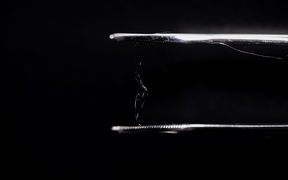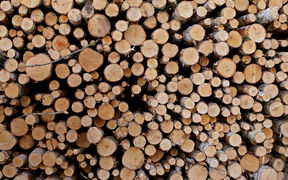Jane and Aatos Erkko Foundation granted Aalto University EUR 10.5 million to establish a bioinnovation centre

Jane and Aatos Erkko Foundation granted Aalto University EUR 10.5 million to establish a bioinnovation centre. This is one of the biggest grants the foundation has ever awarded.
‘The decision to support the bioinnovation centre is a new type of strategic opening for the foundation. The foundation has high expectations for the centre to achieve its goals, produce breakthrough solutions and extensively utilise research results’, says Hanna-Mari Peltomäki, a representative of the Jane and Aatos Erkko Foundation.
‘We are extremely grateful to the Jane and Aatos Erkko Foundation for the support, which will enable taking a great leap in the development of Finland’s bioeconomy and circular economy expertise. The bioinnovation centre will provide Finland and the world with the most recent research knowledge in its field, top-class experts and product concepts that combine high-quality design and technology in a sustainable manner. By awarding such a significant grant, the foundation is making a bold and visionary investment in sustainable development. We highly appreciate this’, says Ilkka Niemelä, President of Aalto University.
Major investment in multidisciplinary cooperation
Solving the challenges of the bioeconomy and the circular economy and commercialising inventions cannot be accomplished with the expertise of one field alone. Aalto University will set up a multidisciplinary doctoral programme using the viewpoints of technology, art, design and economics in examining the problems. To lead the programme, Aalto will recruit a professor with strong expertise in materials science and the circular economy, and an ability to network with experts in the field of bioeconomy and creative industries, industry and growth companies. State-of-the-art infrastructure will be an important part of the bioinnovation centre. It supports strong technological development work towards new breakthrough solutions.
The forest industry accounts for about one fifth of Finland’s exports of goods. According to estimates, the value of forest and agricultural biomass in Finland could be as much as doubled by 2050 if it is used for the manufacture of products of high added value. As paper consumption decreases, wood will also be available for other products.
‘For example, the price obtained for textile fibres is around 2.5 times the value of dissolving pulp. Finland could have a thriving textile industry that exploits biomaterials, which will multiply the value and employment impacts of the end products. New biomaterials are also needed in packaging and composites. Future production processes are in line with sustainable development and products are designed so that they can be recycled. This is bioeconomy in which processes support the circular economy’, says Kristiina Kruus, Dean of the Aalto University School of Chemical Engineering.
In recent years, members of Aalto community have developed several promising biomaterial innovations. Extremely strong material formed of spider silk and cellulose can be used in composites and medical applications, for instance. There is a large market for microcrystalline cellulose produced using the environmentally friendly and efficient AaltoCell method in the food and animal feed industry. Wooden glitter made of nanocellulose is an ecological alternative to plastic and metal based glittery pigments.
The bioinnovation centre will benefit from research units already operating in Aalto University, including four European Research Council (ERC) projects, the FinnCERES flagship project – a collaboration with VTT and funded by the Academy of Finland – and the bioeconomy infrastructure on the national roadmap.
CHEMARTS, a project bringing together design and materials science, is a fine example of the multidisciplinary cooperation at Aalto University. In the field of design, Aalto ranks among the top ten universities in the world, and the university’s high-quality materials science is based on strong expertise on fibres gathered over several decades.
The research and teaching on the bioeconomy and circular economy is also supported by other fields of research, such as artificial intelligence. The Aalto campus also has a comprehensive 5G network and an industrial internet testing platform involving leading companies in the sector.
Further information:
Ilkka Niemelä, President, Aalto University, president@aalto.fi, telephone: +358 50 452 4690 (assistant Hely Kilpeläinen)
Kristiina Kruus, Dean, Aalto University School of Chemical Engineering, dean-chem@aalto.fi, telephone: +358 50 520 2471
Hanna-Mari Peltomäki, representative of the Jane and Aatos Erkko Foundation, hanna-mari.peltomaki@jaes.fi, telephone: +358 44 513 1069
A combination of wood fibres and spider silk could rival plastic
The unique material outperforms most of today’s synthetic and natural materials by providing high strength and stiffness, combined with increased toughness

What if the world’s cattle munched on Finnish wood?
A new manufacturing method will open entirely new markets for microcrystalline cellulose. It could be used, for example, to enrich animal fodder.

The combination of plant-based particles and water forms an 'eco' super-glue
In a collaboration between Aalto and other research institutions, a new, ecological adhesive has been developed that rivals superglue in strength

Designer Noora Yau and materials scientist Konrad Klockars have used wood to conjure up a colour, which is transparent yet glows like a copepod in shallow water
Read more news

Join Unite's Well-Being Workshop Series
The interactive Zoom sessions are designed to support doctoral students’ well-being, strengthen a sense of belonging, and offer practical tools for success in their academic journey.Create your CV easily with the Research.fi profile tool
Aalto University’s researchers can now create a CV using the CV tool in the Research tool service. The tool generates an editable Word CV based on your Research.fi profile information, following the official TENK CV template.
Are you tired of bad news?
The Laboratory of Hope exhibition presents ideas for a brighter future from 5th February to 27th March 2026






